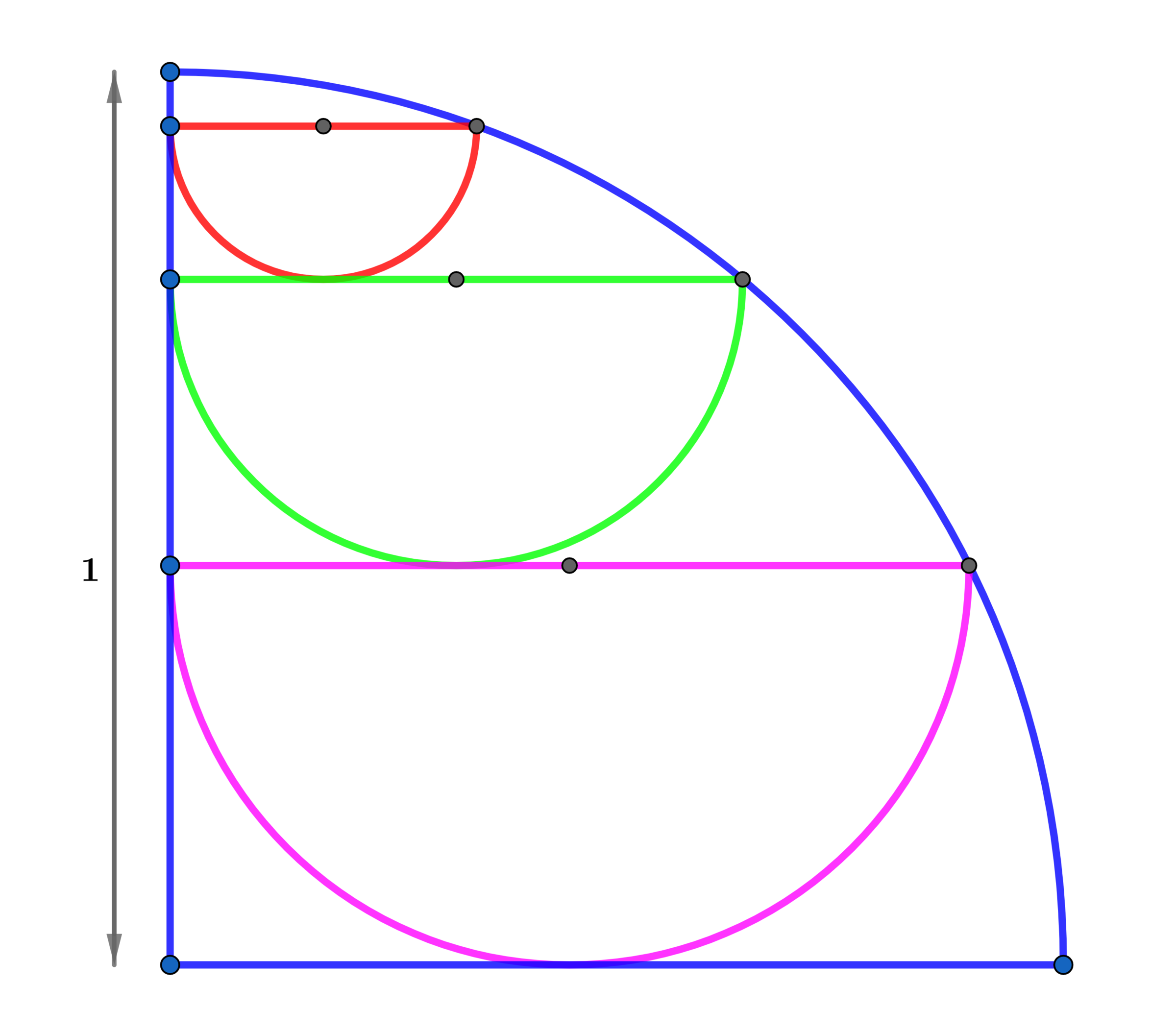Stacked semicircles in a quarter circle.

The quarter circle has radius and the semicircles are stacked in the quarter circle as shown above.
If the radius of the red circle can be expressed as , where and are coprime positive integers, find .
The answer is 505.
This section requires Javascript.
You are seeing this because something didn't load right. We suggest you, (a) try
refreshing the page, (b) enabling javascript if it is disabled on your browser and,
finally, (c)
loading the
non-javascript version of this page
. We're sorry about the hassle.
Using the above diagram 1 = 5 R 1 2 ⟹ R 1 = 5 1 and R 1 + R 2 = 5 5 R 2 + 1 ⟹
5 ( 5 R 2 + 1 ) 2 + 4 R 2 2 = 1 ⟹ 2 5 R 2 2 + 2 5 R 2 − 4 = 0 ⟹ R 2 = 2 5 1 0 5 − 5 dropping the negative root
and ( R 1 + R 2 + R 3 ) 2 + 4 R 3 2 = 1 ⟹ 5 R 3 2 + 2 ( R 1 + R 2 ) R 3 + ( R 1 + R 2 ) 2 − 1 = 0 ⟹
R 3 = 5 − ( R 1 + R 2 ) + 5 − 4 ( R 1 + R 2 ) 2 , where R 1 + R 2 = 5 5 2 1 + 4 ⟹
( R 1 + R 2 ) 2 = 1 2 5 3 7 + 8 2 1 ⟹ 5 − 4 ( R 1 + R 2 ) 2 = 1 2 5 4 7 7 − 3 2 2 1 ⟹
R 3 = 2 5 5 4 7 7 − 3 2 2 1 − 2 1 − 4 = 5 2 5 4 7 7 − 2 5 2 1 − 2 1 − 2 2 =
( c b ) c a − ( b c ) d − d − b b ⟹ a + b + c + d = 5 0 5 .